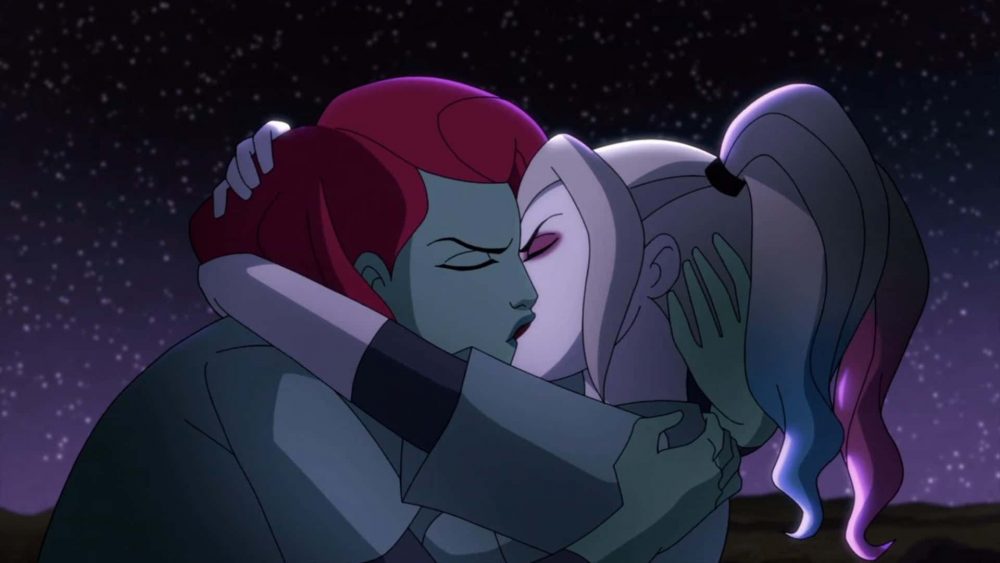She-Ra and the Princesses of Power heralds a new era for LGBTQ+ storytelling – one without queerbaiting
We have all, at one point or another, fallen into the trap of queerbaiting.
Imagine this: you are watching film or TV show with two characters that have an undeniable chemistry. Their looks linger, their touches are nervous and the script sizzles with unspoken intimacy. As the tension builds and the climatic end approaches, you are sure they will get together with a dramatic kiss or earth-shaking declaration of love.
LOL, nope.
Both characters are paired off into poorly developed heterosexual unions or one of them is killed off, leaving the other to morn what-could-have-been. That, in a nutshell, is queerbaiting.
It is what Urban Dictionary concisely defines as, ‘When an author/director /etc. gives hints, and clever twists to paint a character as possibly being queer, to satisfy queer audiences, but never outright says they are so they can keep their heterosexual audience.’ Whilst there are countless examples, think: Rachel and Quinn from Glee, Regina and Emma from Once Upon A Time and Kara and Lena from Supergirl.
Queerbaiting has had an enduring presence in LGBTQ+ representation long before it was given a name by internet fandom culture. It is part-and-parcel of the problematic narratives that underpin LGBTQ+ representation in the mainstream. In this way, falling victim to the trap of queerbaiting has always been a tragic but completely commonplace experience for LGBTQ+ people who consume mainstream media.
The continued prevalence of queerbaiting in LGBTQ+ stories is not, however, an immoveable narrative feature. As more openly identified LGBTQ+ creators come to control the direction of LGBTQ+ stories there is a definitive cultural shift being signalled. One that is moving towards authentic queer representations and away from narratives that are aligned with, and thus reinforce, heteronormative cisgendered worldviews.
Last week, and ironically enough on the same day, two separate TV shows – Harley Quinn and She-Ra and the Princesses of Power – answered the internet’s prayers, confirmed fandom theory and had their lady leads lock-lips on screen. Cue celebrations across social media with an explosion of fanart, memes and tweets of ‘GAY RIGHTS!’. A same-sex kiss is certainly no longer revolutionary but what makes these ones so refreshing is that they happen within stories that could have so easily been typical queerbaiting. It begs the question: is queerbaiting finally being put to bed once and for all?
She-Ra, in particular, is a children’s animation with a queer-coded relationship between its main characters Catra and Adora. The fine line between best friends and ‘something more’ is one that many queerbaiting narratives have traditionally straddled. However, in its final season She-Ra took queer representation in children’s programming to an entirely new level by delivering on five seasons of tensions, growth, blushes and subtle flirting with a declaration of love and passionate kiss between Catra and Adora.
The unapologetically queer conclusion to their relationship is credit to showrunner Noelle Stevenson, who herself is LGBTQ+ and wanted to create a show with a queer relationship central to the plot. It is a far cry from the conclusion of Korra and Asami’s relationship back in 2010 on The Legand of Korra, which although acknowledged as romantic by its creators had to be left purposefully ambiguous to air on a children’s network. Under a different showrunner, She-Ra could have very easily fallen trap to queerbaiting and concluded with Catra and Adora as gal pals.
The cultural significance of She-Ra’s queerness is testament to the authentic stories that can be told when queerness is developed and explored by actual LGBTQ+ people. As more queer creatives come to forefront, queerbaiting should inevitably – and thankfully – become a thing of the past.
API key not valid. Please pass a valid API key.